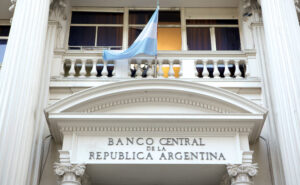In a surprising turn of events, some Western banks are expressing apprehension over the European Union’s proposal to redistribute billions of euros in interest earned on frozen Russian assets. Senior industry sources have indicated that this move could potentially lead to costly litigation, a fear that has prompted these banks to lobby against the proposal.
The EU leaders recently agreed to proceed with a plan that would allocate up to 3 billion euros ($3.3 billion) annually to supply arms to Ukraine, aiming to strengthen Kyiv’s defense against Russia. However, Russia would still maintain ownership of the underlying frozen assets. While EU leaders believe the proceeds could be utilized within a few months, some banks are concerned about potential liabilities if they are involved in transferring money to Ukraine. They also worry that the EU’s plan could be extended to assets held for sanctioned individuals and companies, a possibility that has not yet been formally raised by the EU.
The sources, who have requested anonymity due to the sensitivity of the matter, are actively sharing their concerns with British and eurozone policymakers. They are particularly flagging the likelihood of litigation when anti-Russian sanctions are eventually eased or lifted.
Russia has strongly opposed any attempts to seize its assets, arguing that such actions would constitute “banditry” and could result in decades of legal action against those involved. Moscow has also warned of retaliatory measures if its assets or income are expropriated.
Euroclear, the Belgium-based central securities depository that holds the equivalent of 190 billion euros of Russian central bank securities and cash, is a key player in this scenario. Under the EU plan, Euroclear would receive a fee and be permitted to temporarily retain 10% of the profits on stranded Russian assets to safeguard against potential litigation.
The EU proposal has raised concerns about the erosion of trust in the Western banking system. Banks fear the precedent this proposal could set, leading to the “weaponization” of foreign-held reserves and assets. Moreover, they are seeking legal advice on indemnities to protect themselves if the EU plan moves forward.
Legal experts are also weighing in on the potential consequences of the EU’s proposal. Paul Feldberg, a partner at Brown Rudnick’s White Collar Defense, Investigations & Compliance practice in London, believes that banks are right to be concerned, considering the significant civil litigation related to sanctions in recent years.
While the European Commission did not respond to requests for comment, the UK Foreign, Commonwealth, and Development Office stated that British Foreign Secretary David Cameron supports using the frozen assets for the benefit of the Ukrainian people.
The outcome of this proposal remains uncertain, as it is unclear how many EU member states will support it or how quickly it could be implemented. In the meantime, banks are advised to prepare for potential disputes and litigation arising from the redistribution of frozen Russian assets.
(Source: Reuters | Washington Post | PressTV)









